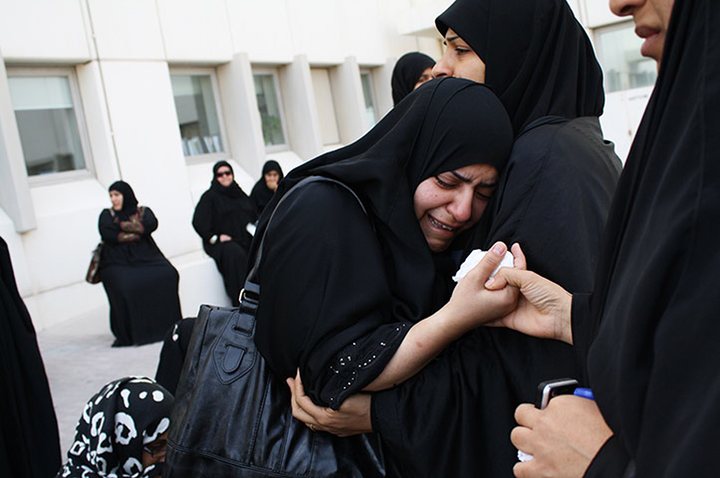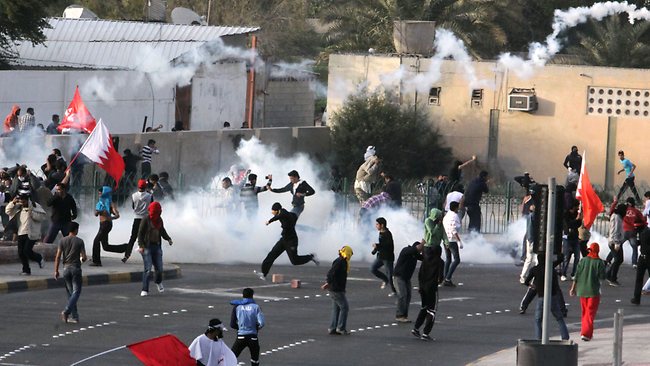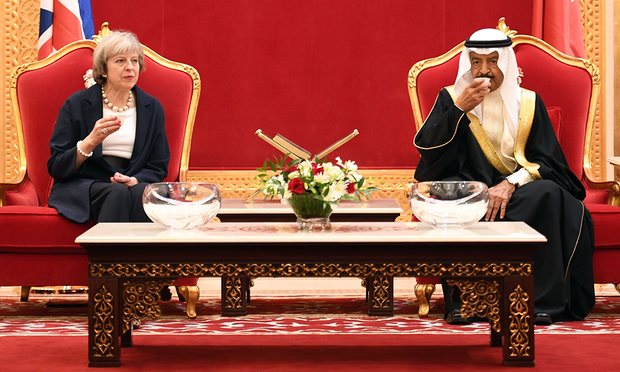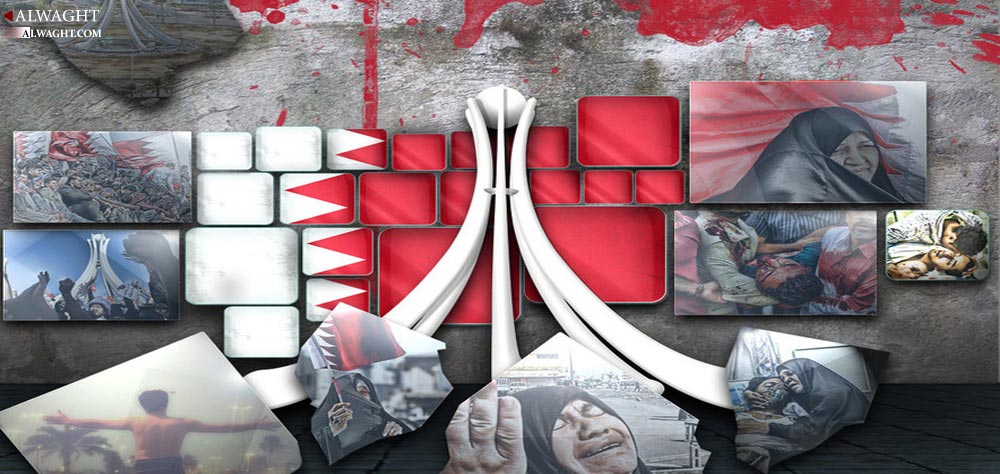Alwaght- Six years after Bahrain's popular uprising, began on 14 February 2011, the conditions in the Arab state remain chaotic and tense. The Bahraini regime still declines to display any will to implement Bahraini people's demanded reforms and going through any reconciliation process, overlooking all of the calls, from home and outside, to end repressing the national popular movements. The security forces quash the peaceful anti-regime protests with an extraordinary violence. The use of poisonous tear gas has become a fixed part of clampdown in the tiny Persian Gulf island.
Jailing and executing the opposition members without charges and without holding hearing sessions for them in fair courts triggered a wide-ranging outcry of the human rights organizations against the measures of the Bahraini regime. Beside the above-mentioned repressive measures, the country’s major opposition movements and parties have been banned from being active in the nation. Furthermore, the opposition leaders, like the top Shiite cleric Sheikh Isa Qassim, are brought under heavy strains in many ways.

Very naturally, six-year continuation of uprising in the country raises a question for foreign observers of Bahrain’s developments: why have neither the regime’s approach of iron fist nor the popular approach of revolting succeeded in fully reaching their goals so far?
The regime’s self-destructive nature
The conditions that led to start of the process of the revolution of the Bahraini people in 2011 and let it still continue appeared to be unavoidable. The critics of the regime demanded for an open political atmosphere to allow them express the problems and flaws of the ruling family and at the same time propose reforms to the structure of governance in a bid to stop further discrimination against the Shiite population, which is a majority in the country.
But among the opposition movements, some factions to some degree approved of the current political system. However, a failure of the country’s political system to manage the crisis stemming from the ongoing anti-regime protests and use of iron-fist policy through calling support of the foreign repressive forces, or the Peninsula Shield Forces, including forces from the Persian Gulf Arab states, made the idea of demands for reforms lose edge to the idea of regime change.
The reason for continuation of the uncompromising spirit of the revolution is that the ruling Al Khalifa dynasty beholds the roots of the demonstrations from the window of a conspiracy theory. Clinging to the idea of Iranian interventions in their internal affairs, the Al Khalifa leaders have persistently declined to buy the fact that the crisis predominantly derives from their failure in managing the situation and also regime's suffering from legitimacy crisis. Adopting this approach, they have so far been successful in getting a green light from the Western countries and support from the allied Arab states of the region to press ahead with further anti-opposition clampdown.

On the other side, the resistance of the ruling Al Khalifa family to even accepting part of the widely legitimate demands of the opposition sides is emboldened by regime's hope for the uprising process to become erosive until the government can secure rise of a powerful pre-regime layer in the society as a result of its demographic and immigration policies aimed at increasing the Sunni population in the country. This approach majorly lays bare a misapprehension of the nature of the political conflict in the current conditions.
While the popular uprisings against the corruption and dictatorship have swept through the region relying only on the alternative of building a democratic structure for giving the power to the people and raising responsive and efficient leaders in the Arab world, the optimism to save the rule by inflaming the religious gaps had no outcomes but worsening the situation.
Bahrain’s significance in the regional powers' strategies and competitions
Perhaps no time is more critical than now– after six years of revolutionary developments– in expression of the strategic role and significance of this tiny Arab island and its developments for the regional and global powers which are propping up the Al Khalifa regime. As a leading foreign actor and a proxy force on behalf of the Western powers, Saudi Arabia since the beginning of the revolution undertook an open role in putting down the Bahraini opposition groups.

But the role of the Western powers in Bahrain’s crisis was also exposed when Britain at the 37th summit of the (Persian) Gulf Cooperation Council (PGCC) in Manama early in December 2016 announced reopening its military bases in the small kingdom, declaring that it was returning to the region after nearly six decades. In PGCC summit, Theresa May, without raising any concerns over the repression of the Bahraini people’s demonstrations, highlighted a need for renewed alliance with the Persian Gulf Arab states to curb what she called Tehran's interventions in these countries' domestic affairs.
On the other side, with Trump’s rise to power as president of the US, the media have talked about the new American administration’s decision to sell arms to the Arab countries. This is while the former US administration declined to go ahead with the weapons deal due to international pressures blaming the dreadful human rights conditions in Bahrain.
With a consideration of the present circumstances, it seems that the way of the revolutionaries of Bahrain is becoming more uneven than before, and that they are now not facing only Al Khalifa regime but a league of pro-regime regional and international powers, something that resistance to it takes further unity and adoption of more operational strategies by the revolutionary factions.



























